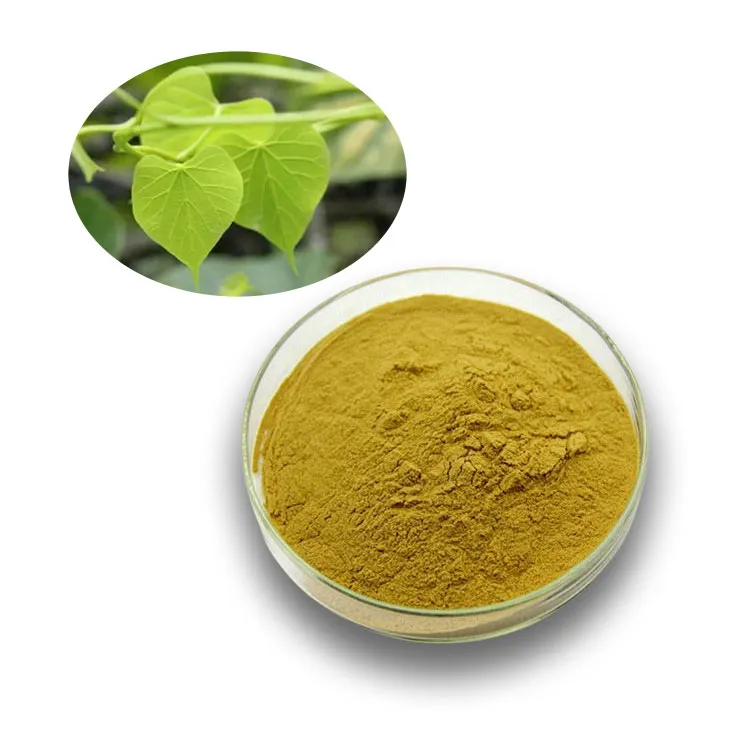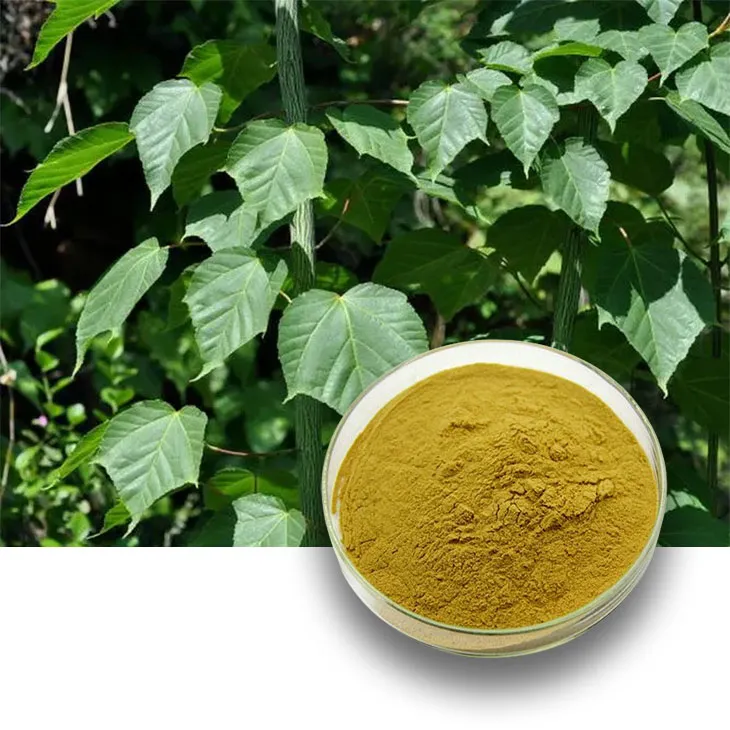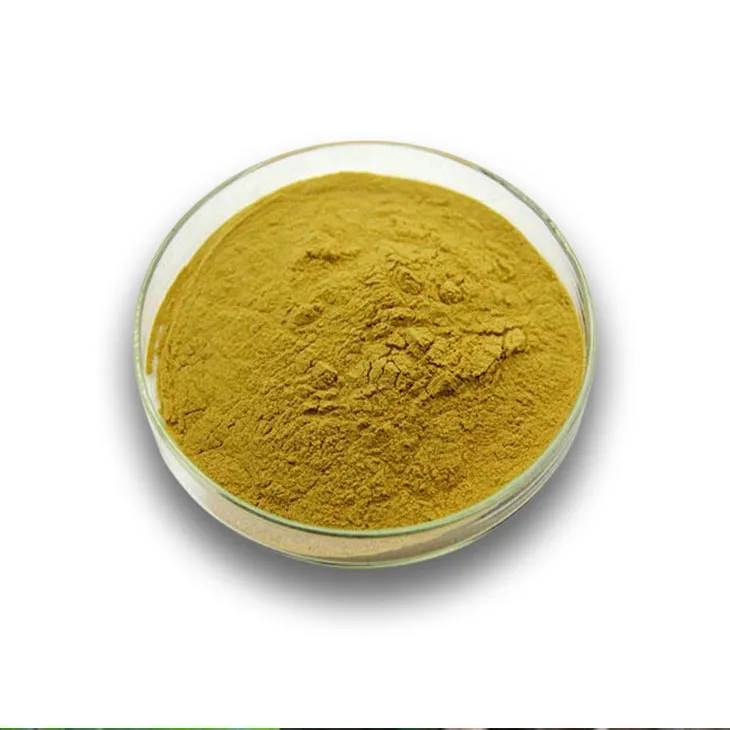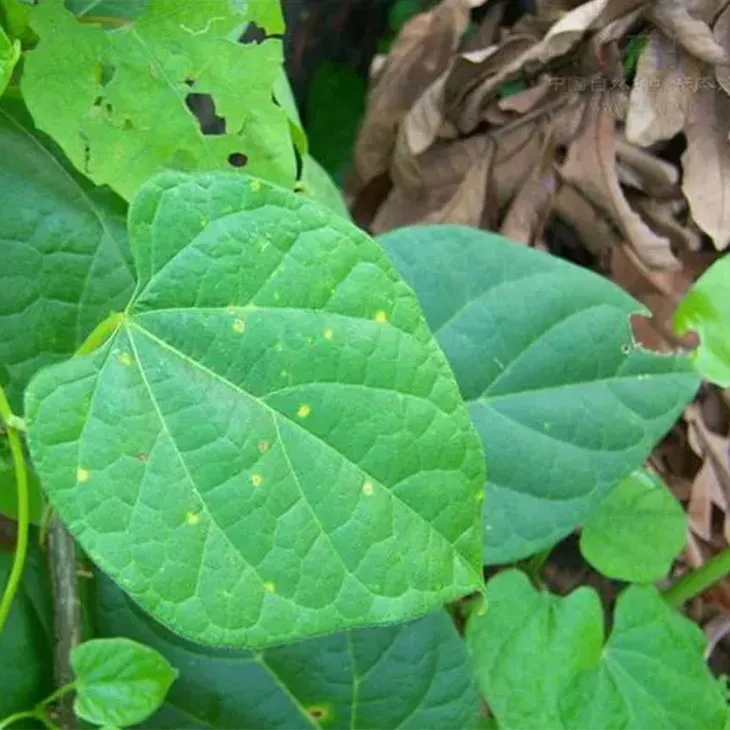- 0086-571-85302990
- sales@greenskybio.com
Wholesale Suppliers of Tinospora cordifolia Extract.
2024-11-26

Introduction to Tinospora cordifolia
Tinospora cordifolia, a plant native to specific regions, has been an integral part of traditional medicine systems for centuries. This plant, often referred to as "Guduchi" in Ayurveda, is known for its various medicinal properties. It is a climbing shrub that thrives in tropical and subtropical regions. The traditional use of Tinospora cordifolia dates back to ancient times when it was used to treat a wide range of ailments such as fever, diabetes, and liver disorders. The knowledge of its therapeutic benefits has been passed down through generations, and now, with the growing interest in natural remedies, it is being explored more extensively in modern scientific research.

The Role of Wholesale Suppliers
1. Bridging the Gap
Wholesale suppliers play a crucial role in connecting the source of Tinospora cordifolia with the end - users. They act as intermediaries between the cultivators or collectors of the plant and the industries that require the extract for various applications. This involves establishing a reliable supply chain that ensures a consistent flow of the raw material. Suppliers need to source the plant from regions where it is abundantly available and of good quality. They also need to take into account factors such as sustainable harvesting to ensure the long - term availability of the plant.
2. Research and DevelopmentInvesting in research and development is another important aspect of the role of wholesale suppliers. They need to understand the chemical composition of Tinospora cordifolia extract thoroughly. By doing so, they can better identify its potential uses and applications. This research helps in optimizing the extraction process to obtain a high - quality extract. Suppliers may collaborate with research institutions or conduct their own in - house research. For example, they might study the different bioactive compounds present in the extract and how these compounds interact with the human body. This knowledge can then be used to develop new products or improve existing ones.
3. Quality AssuranceQuality assurance is a top priority for wholesale suppliers of Tinospora cordifolia extract. Since their clients, which include manufacturers of dietary supplements, herbal remedies, and other health - related products, demand high - quality extracts, suppliers must implement strict quality control measures. This starts from the sourcing of the plant material. Only healthy and properly identified plants should be used for extraction. During the extraction process, suppliers need to ensure that the right methods are used to preserve the integrity of the bioactive compounds. Quality testing should be carried out at multiple stages, including testing for purity, potency, and the absence of contaminants. For instance, they may use techniques such as high - performance liquid chromatography (HPLC) to analyze the chemical composition of the extract and ensure that it meets the required standards.

Chemical Composition and Potential Uses
1. Chemical Composition
Tinospora cordifolia extract contains a rich array of bioactive compounds. Some of the key components include alkaloids, diterpenoid lactones, and glycosides. Alkaloids such as tinosporine and cordifolione are known for their anti - inflammatory and immunomodulatory properties. Diterpenoid lactones like tinosporide have shown antioxidant and anti - microbial activities. The glycosides present in the extract may contribute to its potential role in managing blood sugar levels. Understanding these chemical constituents is essential for both the wholesale suppliers and the end - users, as it provides insights into the extract's potential health benefits.
2. Potential Uses
- Dietary Supplements: Due to its various health - promoting properties, Tinospora cordifolia extract is increasingly being used in dietary supplements. It can be formulated as capsules, tablets, or powders. For example, it may be used in products aimed at enhancing the immune system, improving digestion, or providing general well - being.
- Herbal Remedies: In traditional medicine systems, Tinospora cordifolia has been used to treat a variety of diseases. In modern herbal remedies, the extract can be used for conditions such as fever, cough, and cold. It may be combined with other herbs to create more effective formulations.
- Skincare: The antioxidant and anti - inflammatory properties of the extract make it a potential ingredient in skincare products. It can be used in creams, lotions, and serums to help with skin conditions such as acne, eczema, and premature aging. The bioactive compounds in the extract may help to protect the skin from oxidative stress and inflammation.

Global Promotion of Tinospora cordifolia Extract
1. Making it Available on a Large Scale
Wholesale suppliers contribute significantly to the global promotion of Tinospora cordifolia extract by making it available in large quantities. This enables manufacturers around the world to incorporate the extract into their products. By ensuring a stable supply, suppliers encourage more industries to explore the potential of this natural extract. They also play a role in making the extract more accessible to different markets, both in developed and developing countries.
2. Marketing and EducationSuppliers are involved in marketing the benefits of Tinospora cordifolia extract. This includes providing information about its traditional uses, scientific research findings, and potential applications. They may participate in trade shows, conferences, and other industry events to promote the extract. Additionally, they can collaborate with healthcare professionals and researchers to educate the public about the extract's properties. Through these efforts, they can increase the awareness and acceptance of Tinospora cordifolia extract in the global market.

Challenges Faced by Wholesale Suppliers
1. Regulatory Compliance
The natural extract industry is highly regulated, and wholesale suppliers of Tinospora cordifolia extract must comply with various regulations. These regulations may vary from country to country, depending on the intended use of the extract. For example, if the extract is used in dietary supplements, it may need to meet specific safety and labeling requirements. Suppliers need to stay updated on these regulations and ensure that their products are compliant. This can be a complex and time - consuming process, especially when dealing with multiple international markets.
2. Sourcing and SustainabilityEnsuring a reliable source of Tinospora cordifolia can be challenging. The plant may be subject to over - harvesting in some regions, which can lead to a decline in its population. Wholesale suppliers need to work towards sustainable sourcing methods. This may involve promoting cultivation programs, working with local communities to ensure proper harvesting practices, and supporting conservation efforts. Additionally, they need to find ways to source high - quality plants consistently, which may be difficult due to factors such as climate change and variability in growing conditions.
3. CompetitionThe market for natural extracts is highly competitive, and wholesale suppliers of Tinospora cordifolia extract face competition from other suppliers offering similar products. They need to differentiate themselves by providing high - quality products, excellent customer service, and competitive pricing. Suppliers may also need to invest in innovation to develop new products or extraction methods to stay ahead in the market.
Future Outlook
1. Growing Demand
With the increasing consumer preference for natural products, the demand for Tinospora cordifolia extract is expected to grow in the future. Consumers are becoming more aware of the potential benefits of natural remedies and are actively seeking products that contain natural ingredients. This trend is likely to drive the growth of the market for Tinospora cordifolia extract, both in the dietary supplement and herbal remedy sectors.
2. Research AdvancementsAs research on Tinospora cordifolia continues, more potential uses and benefits of the extract are likely to be discovered. This will open up new opportunities for wholesale suppliers. For example, if new bioactive compounds are identified or if the extract is found to be effective in treating new diseases, suppliers can expand their product offerings and target new markets. Additionally, advancements in extraction technology may lead to more efficient and cost - effective production of the extract.
3. Global ExpansionThe global market for Tinospora cordifolia extract has the potential for expansion. Suppliers can look into entering new markets, especially in regions where there is a growing interest in natural health products. This may require adapting to local regulations, cultural preferences, and market conditions. However, with proper planning and strategic partnerships, wholesale suppliers can take advantage of the global expansion opportunities and contribute to the wider adoption of Tinospora cordifolia extract.
FAQ:
What are the main quality control measures for wholesale suppliers of Tinospora cordifolia extract?
Wholesale suppliers of Tinospora cordifolia extract typically have several quality control measures. They start with sourcing the plant material from reliable and sustainable sources. Then, during the extraction process, they adhere to strict manufacturing standards to ensure consistency. Testing for purity, potency, and the absence of contaminants such as heavy metals and pesticides is also crucial. They may use advanced analytical techniques like HPLC (High - Performance Liquid Chromatography) to verify the chemical composition of the extract.
How do wholesale suppliers contribute to the research on Tinospora cordifolia extract?
Wholesale suppliers often invest in research and development related to Tinospora cordifolia extract. They may collaborate with research institutions or universities. By providing financial support or samples of the extract, they help in studying its chemical properties, biological activities, and potential health benefits. Their large - scale operations also allow for more extensive data collection on the extract's performance in different applications.
What are the typical applications of Tinospora cordifolia extract in the market?
Tinospora cordifolia extract is commonly used in dietary supplements due to its potential health - promoting properties. It is also used in herbal remedies for various traditional medicinal purposes. In some cases, it may be explored for use in the cosmetic industry for its antioxidant properties. However, its applications are still being widely explored, especially in the context of modern medicine.
How do wholesale suppliers ensure the sustainability of Tinospora cordifolia sourcing?
Wholesale suppliers ensure the sustainability of Tinospora cordifolia sourcing in several ways. They may work with local farmers or communities to promote sustainable harvesting practices. This could include guidelines on proper pruning techniques to avoid over - harvesting. They also support initiatives for the cultivation of Tinospora cordifolia to reduce the pressure on wild populations. Additionally, they may be involved in conservation efforts in the native regions of the plant.
What are the challenges faced by wholesale suppliers of Tinospora cordifolia extract?
One of the main challenges is regulatory compliance. Different regions may have varying regulations regarding the production, sale, and use of herbal extracts. Another challenge is ensuring a consistent supply of high - quality plant material. Fluctuations in weather, pests, and diseases can affect the availability and quality of Tinospora cordifolia. Additionally, competition in the market can be intense, and they need to constantly innovate in terms of product quality and cost - effectiveness.
Related literature
- Tinospora cordifolia: A Review of Its Phytochemistry, Pharmacology, and Therapeutic Potential"
- "The Role of Tinospora cordifolia Extract in Modern Herbal Medicine"
- "Sourcing and Quality Assurance of Tinospora cordifolia Extract for Wholesale Suppliers"
- ▶ Hesperidin
- ▶ Citrus Bioflavonoids
- ▶ Plant Extract
- ▶ lycopene
- ▶ Diosmin
- ▶ Grape seed extract
- ▶ Sea buckthorn Juice Powder
- ▶ Fruit Juice Powder
- ▶ Hops Extract
- ▶ Artichoke Extract
- ▶ Mushroom extract
- ▶ Astaxanthin
- ▶ Green Tea Extract
- ▶ Curcumin
- ▶ Horse Chestnut Extract
- ▶ Other Product
- ▶ Boswellia Serrata Extract
- ▶ Resveratrol
- ▶ Marigold Extract
- ▶ Grape Leaf Extract
- ▶ New Product
- ▶ Aminolevulinic acid
- ▶ Cranberry Extract
- ▶ Red Yeast Rice
- ▶ Red Wine Extract
-
Phellodendron Extract
2024-11-26
-
Mulberry leaf Extract
2024-11-26
-
Hawthorn Extract
2024-11-26
-
Scutellaria Extract
2024-11-26
-
Rose Hip Extract
2024-11-26
-
Hedyotis Diffusa Extract
2024-11-26
-
Kidney Bean Extract
2024-11-26
-
Chasteberry Extract
2024-11-26
-
Cocoa Extract
2024-11-26
-
Stevia Extract
2024-11-26





















